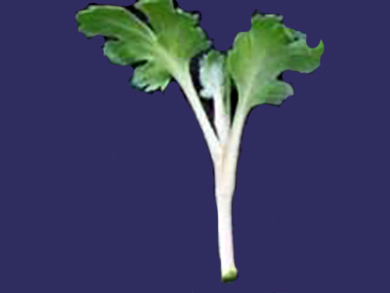Is it possible to produce large quantities of high quality vegetables on a space station? Can cuttings grow their own root system without gravity to guide them? To answer these question, three twelfth-grade students from the agricultural program at the Edith Stein School in Ravensburg, Germany, are setting up a research project.
Cuttings are used to reproduce plants, as their roots and leaves can grow and further develop. On earth, the roots grow towards the direction of gravity and the sprouts grow towards the sun. If cuttings could be used for the reproduction of plants in microgravity, this would be a major step forward in the effort to supply long-term space flights, e.g., to Mars, with food from space farming. However, until now, experiments conducted in microgravity have focused on studying the growth of the seedlings’ roots. In contrast to seedlings, cuttings do not have a root system.
The student research team is currently developing an appropriate experimental design for the International Space Station (ISS). BASF is providing knowledge on how to keep the plants healthy and free from fungal disease during the foreseen 30 days in the ISS environment. The students will do an internship with experts at the BASF Agricultural Center in Limburgerhof, Germany, before conducting trials at Kennedy Space Center laboratories in Florida, USA.
This is the first German student project to be included in NASA’s educational program via the NASA and NanoRacks Space Act Agreement. The Edith Stein Schule is one of the UNESCO project schools. They work worldwide in support of international understanding, peace, intercultural dialogue, sustainable development, and quality education in practice.
- BASF SE, Ludwigshafen, Germany
- Edith Stein School, Ravensburg, Germany



